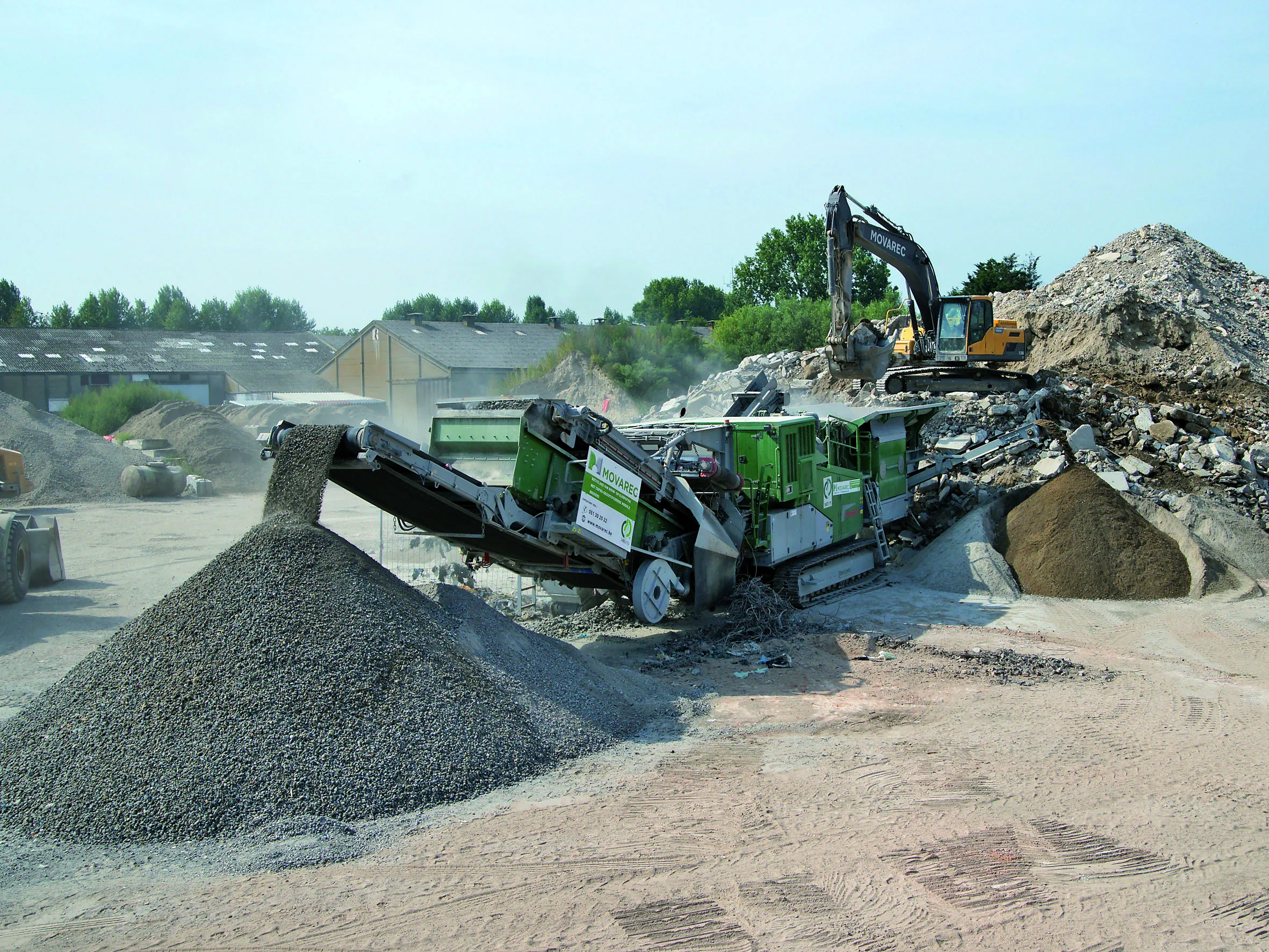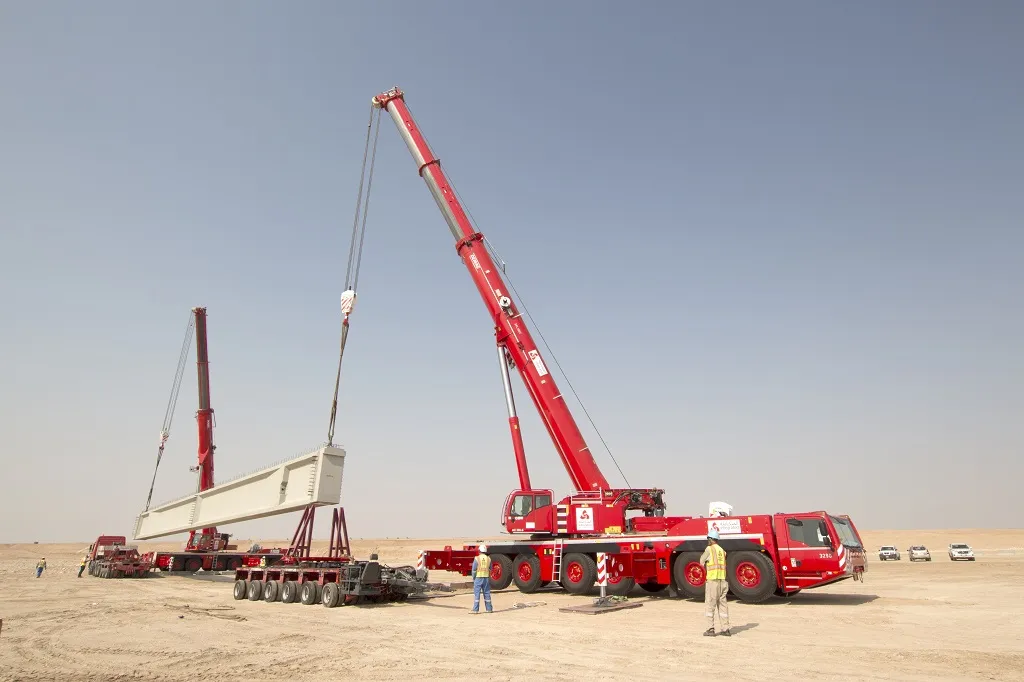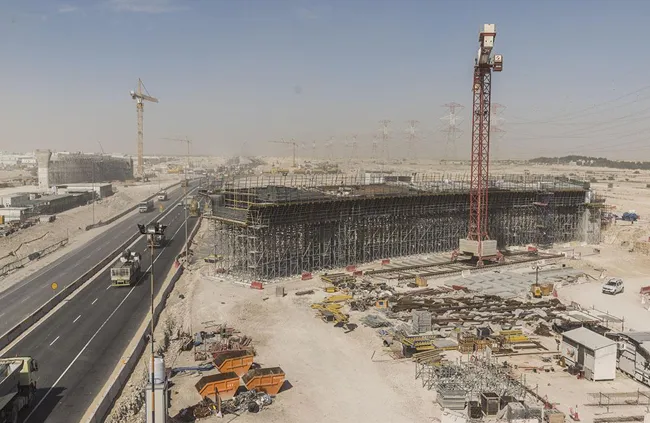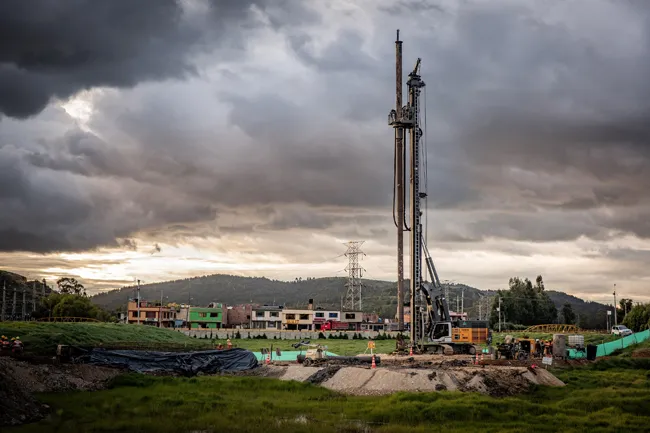A fleet of Rammer breakers is being used to help build a new underground car park in Qatar
The underground car park will be for a dentistry and dermatology clinic in the capital, Doha.
Hydraulic hammers being mentioned at the same time as a dental surgery is often associated with pain, discomfort and general unpleasantness. This is not the case in Doha, the capital of Qatar, as Rammer hammers are being used to spearhead the creation of an underground car park at a dentistry and dermatology clinic.
June 20, 2016
Read time: 2 mins
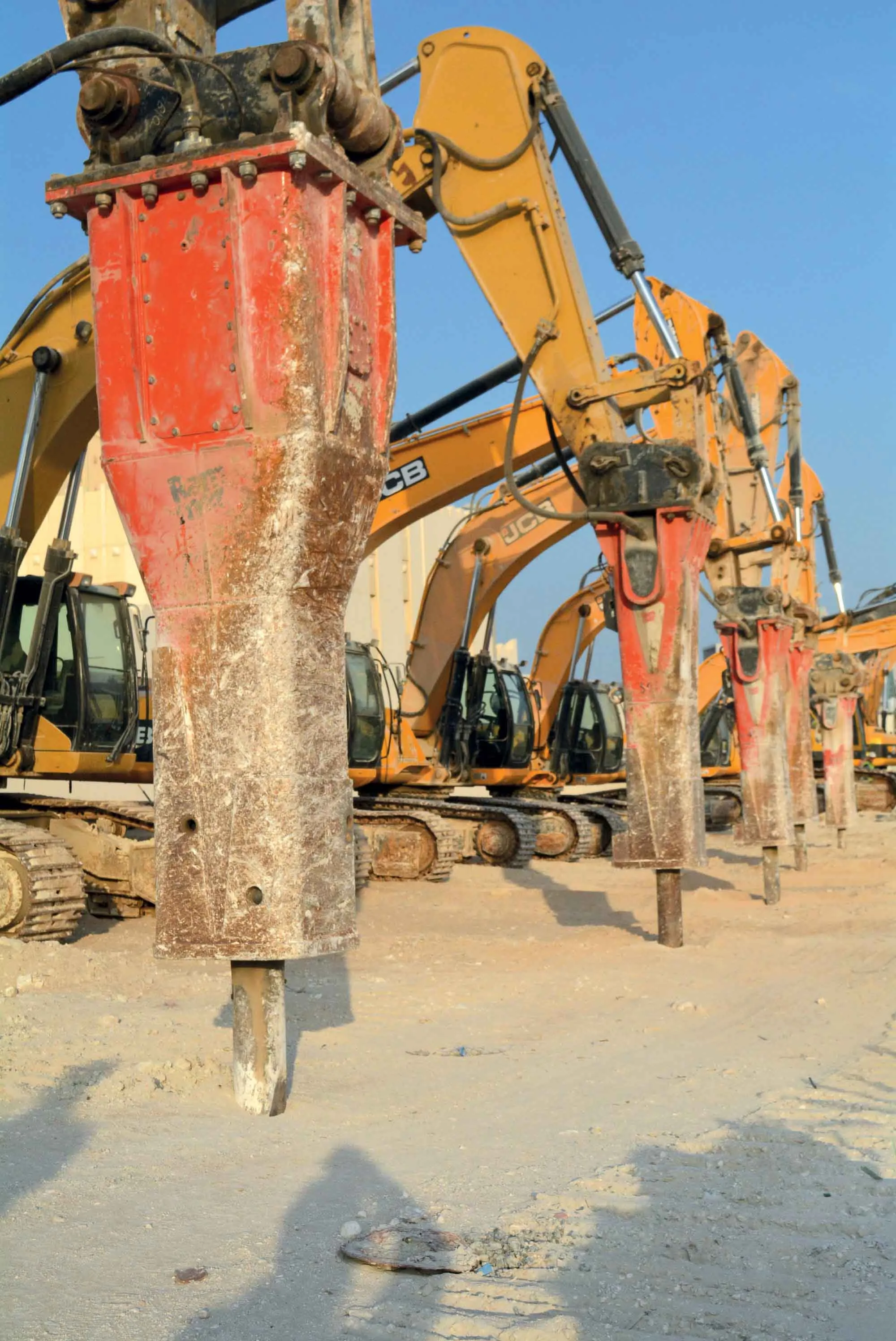
A fleet of 5076 Rammer breakers is being used to help build a new underground car park in Qatar
The underground car park will be for a dentistry and dermatology clinic in the capital, Doha.
Hydraulic hammers being mentioned at the same time as a dental surgery is often associated with pain, discomfort and general unpleasantness. This is not the case in Doha, the capital of Qatar, as Rammer hammers are being used to spearhead the creation of an underground car park at a dentistry and dermatology clinic.
The principle contractor on the project,5487 Roadbridge, is using a fleet of Rammer hammers that range from a pair of 3288 models right up to a 7013. The latter being the largest unit in the Rammer range. Part of a US$10 million contract, the project requires the removal of around 350,000m3 of medium and hard limestone to create a car park space that is 200m long by 150m wide and 25m deep.
The six-month contract is being carried out by Roadbridge. Heavy breaking is carried out by the 6.2tonne Rammer 7013 which is mounted on a Volvo EC700 excavator. The firm also has a2300 Komatsu PC600 and a 178 Caterpillar 345, each carrying a 3.9tonne Rammer 5011.
Elsewhere on the site, a pair of JCB JS360 excavators are being used for out-breaking work using two Rammer 4099 hammers, each of which weigh in at 2.8tonnes. Lighter breaking work is charged to two more JCB excavators, both JS260 units, that are each equipped with a 2.04tonne Rammer 3288 breaker.
Despite the high temperatures, dusty conditions and long 10-hour shifts, the Rammer units have been reliable and Roadbridge reckons it will meet its target of an average production rate of 3,000m3/day throughout the work.
The underground car park will be for a dentistry and dermatology clinic in the capital, Doha.
Hydraulic hammers being mentioned at the same time as a dental surgery is often associated with pain, discomfort and general unpleasantness. This is not the case in Doha, the capital of Qatar, as Rammer hammers are being used to spearhead the creation of an underground car park at a dentistry and dermatology clinic.
The principle contractor on the project,
The six-month contract is being carried out by Roadbridge. Heavy breaking is carried out by the 6.2tonne Rammer 7013 which is mounted on a Volvo EC700 excavator. The firm also has a
Elsewhere on the site, a pair of JCB JS360 excavators are being used for out-breaking work using two Rammer 4099 hammers, each of which weigh in at 2.8tonnes. Lighter breaking work is charged to two more JCB excavators, both JS260 units, that are each equipped with a 2.04tonne Rammer 3288 breaker.
Despite the high temperatures, dusty conditions and long 10-hour shifts, the Rammer units have been reliable and Roadbridge reckons it will meet its target of an average production rate of 3,000m3/day throughout the work.


